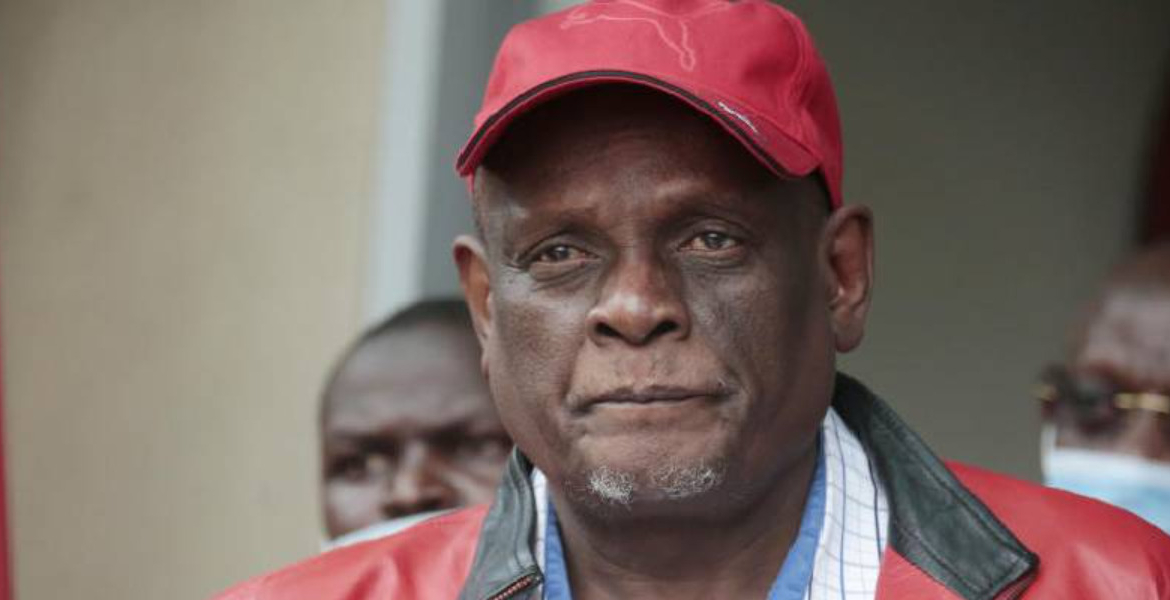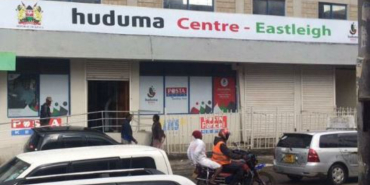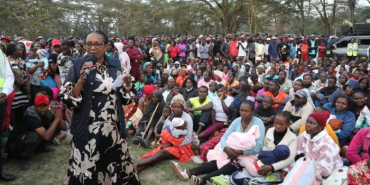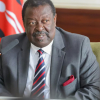ODM Divided Over Jubilee’s Push for Raila to Cut Ties with Ruto

Kenya's opposition coalition is facing renewed turmoil as the Jubilee Party, the former ruling party led by ex-President Uhuru Kenyatta, has offered a conditional endorsement to Orange Democratic Movement (ODM) leader Raila Odinga for the 2027 presidential election.
This backing hinges on Raila severing ties with President William Ruto and his Kenya Kwanza administration, a demand that has ignited conflict within opposition ranks and highlighted significant strategic divisions. The Jubilee Party's announcement, delivered following a National Executive Council (NEC) meeting in Nairobi, marks a critical juncture in the lead-up to the next electoral cycle. The meeting, chaired by Uhuru, was the first since the resolution of internal leadership disputes that had previously paralysed the party.
Jubilee Vice-Chairman David Murathe, a close confidant of the former president, affirmed that the party still recognises Raila as the leader of the Azimio la Umoja One Kenya Coalition. Murathe hinted at the potential formation of a new alliance to challenge President Ruto's incumbency, referring to Raila as a "political genius" whose current ambiguous position within the government allows for strategic realignment.
However, this proposition has not been universally embraced, even within Jubilee's own ranks. Secretary-General Jeremiah Kioni has publicly disputed Murathe's stance, asserting that the party is instead throwing its weight behind former Interior Cabinet Secretary Fred Matiang’i as a presidential contender.
Further complicating matters, the Democratic Action Party–Kenya (DAP–K), led by Eugene Wamalwa, has issued a demand for Raila to apologise to the Kenyan people for what they perceive as a betrayal, stemming from his March 2024 accord with President Ruto. Wamalwa contends that Raila's recent rapprochement with the Kenya Kwanza regime has not only weakened the Azimio coalition but also alienated the youth-driven protest movement that had previously rallied behind his leadership.
"He should first make amends with Kenyans and apologise for the betrayal," Wamalwa said, asserting that Raila should be prepared to compete against other prospective opposition candidates, including Kalonzo Musyoka, Martha Karua, Rigathi Gachagua, Matiang’i, and himself.
Wamalwa's statements reflect a growing sentiment among segments of the opposition leadership that Raila's continued engagement with the Ruto administration has eroded his credibility as a viable alternative. The DAP–K leader has gone so far as to compare Raila's handshake with Ruto to the historical betrayal of Julius Caesar, dubbing it the opposition's "Ides of March" moment.
Inside the ODM, reactions to Jubilee's conditional offer have been varied. Secretary-General Edwin Sifuna has voiced reservations about the broad-based government arrangement, while Deputy Party Leader Godfrey Osotsi has staunchly defended Raila's legacy, rejecting any preconditions for support from Jubilee.
"Raila has sacrificed so much for Kenya and it is only fair that he is not given conditions," Osotsi said, asserting that ODM will make its own determinations regarding future alliances at the appropriate time, without external pressure or interference.
Meanwhile, other political players have dismissed Jubilee's overtures as insignificant. Democracy for Citizens Party (DCP) Secretary-General Cleophas Malala argues that Raila remains aligned with President Ruto and is therefore part of the establishment that the opposition seeks to displace.
"Until he leaves, he’s one of those we are campaigning to retire," Malala said.
Numerous ODM legislators have also expressed scepticism regarding Jubilee's capacity to exert meaningful influence on the 2027 race. Uriri MP Mark Nyamita has characterised the party as "politically impotent," citing its failure to secure victory for Raila in 2022 despite holding the reins of power. Gem MP Elisha Odhiambo and Alego Usonga MP Sam Atandi have echoed this sentiment, questioning Kenyatta's current political relevance.
"Uhuru is lame-duck. What can he do now?" Odhiambo asked, while Atandi suggested that Jubilee should be dissolved altogether.
Nyando MP Jared Okello offered a more incisive critique, arguing that Uhuru lacked the political capital to sway national outcomes even when he was president.
Treasury Cabinet Secretary John Mbadi declined to comment directly on the Jubilee situation, deferring to political leaders for formal statements. However, in earlier remarks, Mbadi criticised Uhuru for failing to secure Raila's victory in 2022, accusing him of misleading the Azimio coalition and squandering a crucial opportunity.
He urged the Nyanza region to rally behind the current administration rather than be drawn into "losing bids" orchestrated by Mt Kenya politicians. Kitui Senator Enoch Wambua added that Jubilee remains deeply fractured internally, with factions loyal to both Kenyatta and Ruto vying for control and influence. He cautioned external actors against interfering in the party’s internal affairs, suggesting that Jubilee must first resolve its internal disputes before it can make any credible strategic decisions or offer meaningful endorsements.
Amid this discord, pressure is building on Raila to clarify his political intentions and address the growing uncertainty surrounding his future role. His continued silence on key national issues and his ongoing engagement with the Kenya Kwanza regime have fuelled speculation about his long-term ambitions and the direction of his political career. In a recent interview, Raila reaffirmed his commitment to the broad-based government until 2027, saying that any decisions regarding future alliances would be made collectively by his party.
Raila also revisited his earlier partnership with Uhuru, rejecting the notion that their 2018 handshake was transactional or driven by personal gain. "I didn’t get anyone appointed to the government. What did I get? Nothing," he said, framing the arrangement as a reform-driven initiative aimed at fostering national unity through the Building Bridges Initiative (BBI), which was ultimately struck down by the courts, thereby preventing its intended constitutional reforms from being implemented.








Add new comment